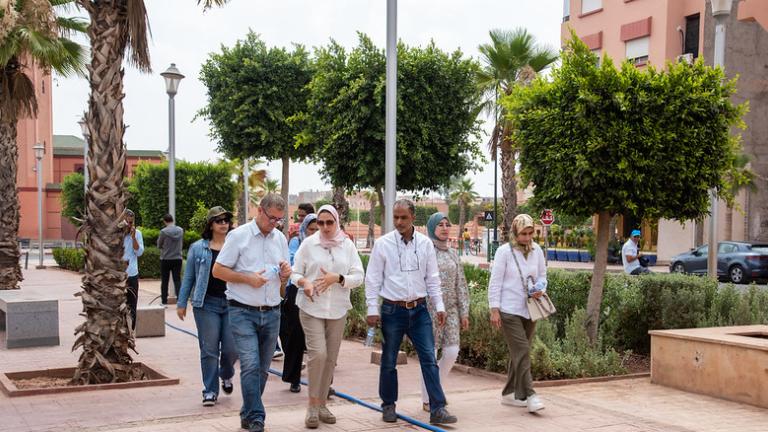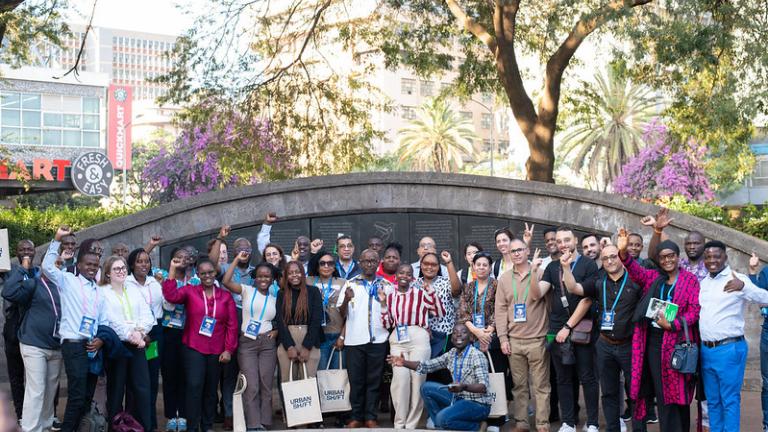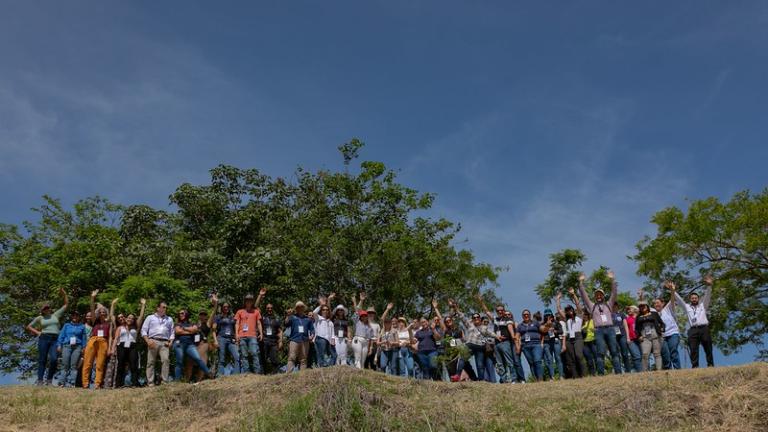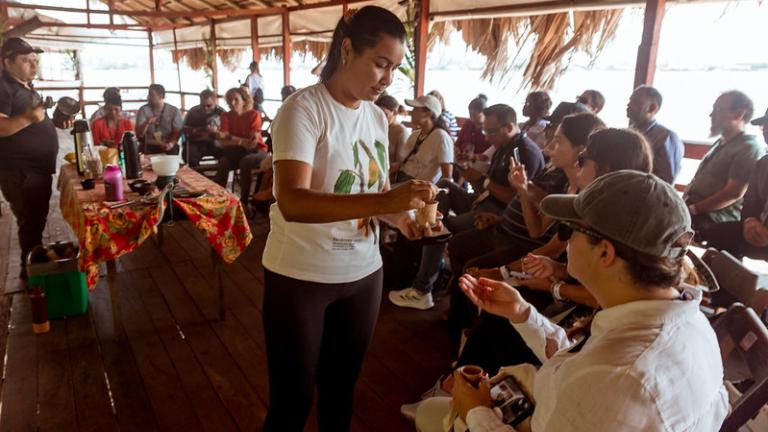Eillie Anzilotti is Communications Lead for UrbanShift, a WRI Ross Center for Sustainable Cities program supporting sustainable and inclusive urban development across 23 cities in the global South. She manages the program's communications strategy, storytelling efforts and social media platforms.
Prior to joining WRI, Eillie managed communications and public relations for the San Francisco Municipal Transportation Agency’s Livable Streets subdivision, where she worked on high-profile, transformative street design initiatives like Slow Streets and establishing a car-free promenade through Golden Gate Park. Before that, she covered urbanism, social justice, and sustainability as a writer and editor for publications including Fast Company and CityLab.
Eillie holds a master's degree in English Literature from the University of Oxford, and a B.S. in English Literature and Creative Writing from the University of Pennsylvania. She lives with her husband in Oakland, California, where she enjoys exploring by bike and advocating for more walkable, livable neighborhoods.
Latest by Eillie Anzilotti

After a devastating earthquake, Marrakech plans to build back with resilience
Reflecting on how, with UrbanShift's support, the city of Marrakech is making strides to enhance its urban nature and lower emissions.

How African cities can develop to become green, resilient, and inclusive
During the Green & Resilient UrbanShift Africa Forum, leaders from across the continent united to learn and share insights on accelerating transformative urban planning approaches—and the finance needed to implement them.

UrbanShift Looks Back: Reflecting on the Impact of our Capacity-Building Offer
WRI’s Mariana Orloff and John-Rob Pool share highlights and learnings from our broad capacity-building efforts, from the City Academy to Peer-to-Peer Exchanges.

ADVANCING GENDER EQUITY THROUGH ACCELERATING CLIMATE FINANCE
The climate crisis is not gender neutral—and the most effective solutions should center the needs and leadership of women and marginalized people.

